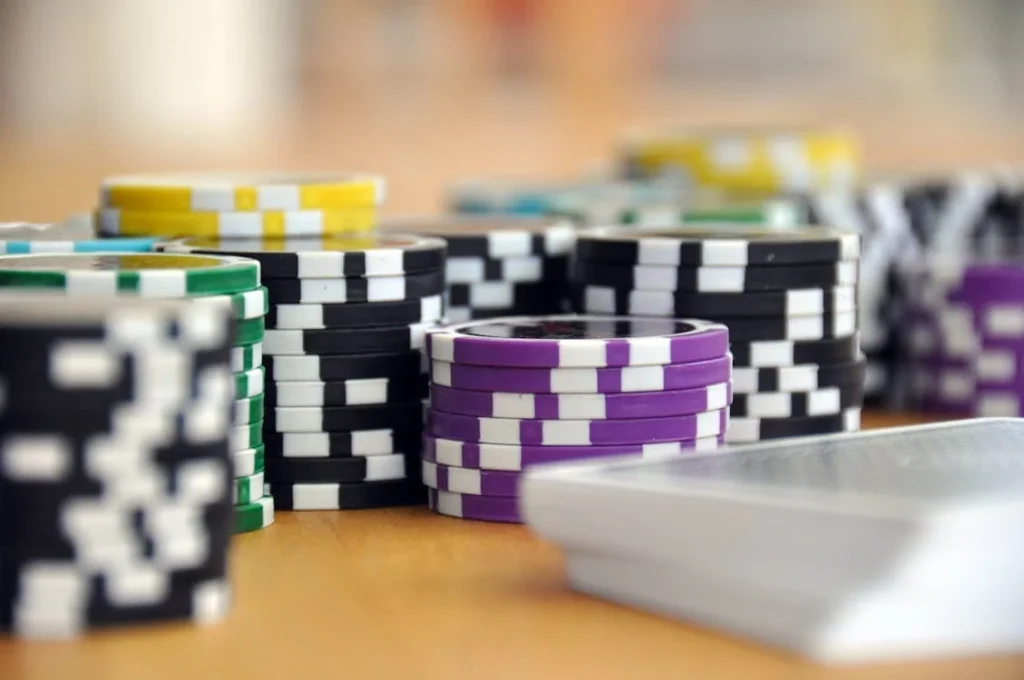Looking for a way to improve your poker game? Whether you’re just setting out on your poker journey or you’re trying to elevate your performances, there are few better places to look for inspiration than the world’s leading poker players. With more than 100 million people playing poker across the planet, to be anywhere near the top requires some serious skill.
So how do they get — and stay — at the time? Let’s take a look at some of the leading attributes of the best players which, you’ll be happy to note, you can easily incorporate into your own poker game.

Understanding Poker
As one of the more complex card games, poker demands a player’s full attention when playing. Players can give themselves a significant advantage by having a thorough understanding of the poker rules, gameplay, and strategies. In doing so, they’ll free up mental space to focus on their hand and plan their path to victory. If you’re unsure about the ins and outs of the games, then spend some time bringing yourself up to speed. You’ll find it much easier to get into the right mindset when the basics have been committed to memory.
Controlling Emotions
A poker game can do a number on your emotional state. But just because it can, that doesn’t mean that it should. Take a look at the world’s best players, and you’ll invariably notice that they’re all as cool as a cucumber when they’re at the table.
And that’s not by accident. Poker is a logical game, and it’s all too easy for logical thinking to go out the window when emotions enter the field. You’ll find that your poker performance levels steadily increase if you can adopt a clinical mind. Like a tennis player gunning for Wimbledon, it’s best to just focus on the task at hand — after all, any other approach may impact the final result.
Time For Learning
You’ll learn a lot by playing regular games of poker. But you can’t learn everything at the table. The best players make time to take a deeper dive into poker strategy, their strengths and weaknesses, and their past performances.
No one’s saying that you need to make improving your poker a de facto full-time job, but spending a little bit of time each week will bring clear — and often immediate — benefits. There’s always something new to learn. Indeed, you can argue that it’s not even possible to become a leading player without spending some time with your head in those poker books (or reading blogs/listening to podcasts); excelling in this game requires ongoing learning.

Mixing Up Strategies
Newcomers feel like they’ve levelled up once they’ve adopted a poker strategy that appears to work for them. However, while having a good strategy will help beat beginners, it’s unlikely to be effective against superior players. Not on a long-term basis, anyway.
After a while, other players — provided they’re good — will understand what’s going on. And just like that, not only will you have lost the advantage you once had, but you’ll have put it into your opponent’s hands. Taking a dynamic approach, in which you use a variety of strategies and approaches, is a much more mature way to play the game. By doing this, you can ensure that your opponent never knows your next move, and that’s a very powerful place to be.
Patience, Discipline, and Long-Term Focus
Poker is full of ups and downs. The best poker players take a long-term, patient approach to the game; they know that if they continue to play their best game, then eventually things will move in their favour. In addition to patience, leading players tend to be disciplined and focused. They’ll put the learning hours in when they need to, and also have the mental capacity to sit through many hours of gameplay without their attention waning. As such, actively learning to improve focus can help improve poker performance — and many other areas of your life, come to think of it.

